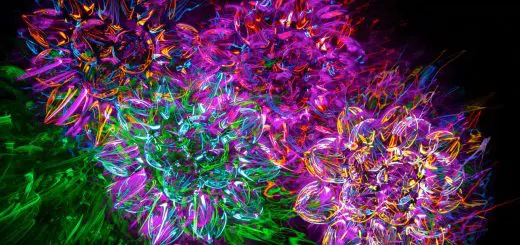The Gnostic Perspective on the Material World

Looking for more amazing products? Check out our online store and explore our collection here! Happy shopping!
Before diving in, please note: This post is for informational purposes only. If you’d like to know more about how we approach topics, feel free to check out our friendly Disclaimer Page.
Hey there, amazing readers! 
We’re committed to delivering quality posts, and your support (even just sticking around despite the ads) means everything to us. So, bear with us, and thanks for helping us keep the good vibes rolling. Now, on to the fun stuff!
TRANSLATE BUTTON AT THE END OF THE ARTICLE
Introduction: What is Gnosticism?
Gnosticism is a diverse spiritual movement that dates back to ancient times and encompasses various beliefs and practices centered around the pursuit of spiritual knowledge or gnosis.
At the core of Gnosticism is the idea that true salvation comes from transcending the material world and gaining a deeper understanding of the spiritual realm.
Gnostics believe that the material world is a flawed creation and that true enlightenment can only be achieved by looking beyond the physical and embracing the divine within.
Gnosticism’s View on the Material World
From a Gnostic perspective, the material world is seen as a place of illusion and suffering, created by a flawed or malevolent creator known as the Demiurge.
Gnostics believe that the physical world is a distortion of the spiritual realm and that humanity’s true purpose is to transcend the material and reunite with the divine.
This perspective contrasts sharply with mainstream religious beliefs that emphasize the importance of the physical world and the material realm.
The Dualistic Nature of Gnostic Beliefs
Gnosticism is characterized by its dualistic worldview, which sees existence as a battle between the forces of light and darkness, good and evil, spirit and matter.
Gnostics believe that the material world is the domain of darkness and ignorance, while the spiritual realm represents light and knowledge.
This dualistic perspective shapes Gnostic beliefs and practices, guiding followers towards seeking enlightenment and liberation from the constraints of the material world.
The Demiurge and the Creation of the Material World
Central to Gnostic cosmology is the concept of the Demiurge, a lesser divine being responsible for creating the material world.
In Gnostic beliefs, the Demiurge is often portrayed as a misguided or malevolent entity who traps human souls in the material realm, keeping them ignorant of their true spiritual nature.
Gnostics view the Demiurge as a flawed creator who inadvertently causes suffering and separation from the divine.
The Role of Sophia in Gnostic Cosmology
Sophia, or wisdom, plays a crucial role in Gnostic cosmology as a divine emanation who embodies the highest spiritual essence.
In some Gnostic traditions, Sophia is seen as a figure who falls from the divine realm into the material world, leading to the creation of the Demiurge and the subsequent distortion of reality.
Sophia’s journey from the spiritual to the material realm symbolizes the Gnostic quest for knowledge and enlightenment, as well as the potential for redemption and salvation.
The Gnostic Rejection of Materialism
Gnosticism rejects the pursuit of wealth, power, and material possessions as distractions from the true spiritual path.
Gnostics view materialism as a trap that keeps individuals bound to the illusions of the physical world, preventing them from attaining true knowledge and enlightenment.
By renouncing material desires and focusing on the inner spiritual journey, Gnostics seek to free themselves from the constraints of the material world and achieve spiritual liberation.
Gnostic Practices to Transcend the Material World
Gnostics engage in various practices to transcend the limitations of the material world and connect with the divine realm.
These practices may include meditation, prayer, contemplation, and rituals designed to elevate consciousness and deepen spiritual awareness.
By engaging in these practices, Gnostics seek to awaken the divine spark within themselves and overcome the illusions of the material world.
The Quest for Gnosis: Knowledge Beyond the Material
Central to Gnostic teachings is the concept of gnosis, or spiritual knowledge that transcends mere intellectual understanding.
Gnosis is seen as a direct experiential knowledge of the divine that can only be attained through personal revelation and spiritual insight.
Gnostics believe that gnosis is the key to unlocking the mysteries of existence and experiencing true liberation from the confines of the material world.
Gnostic Texts and Teachings on the Material World
Gnostic teachings are found in a variety of ancient texts, including the Nag Hammadi library and other early Christian writings.
These texts offer insights into Gnostic beliefs about the material world, the Demiurge, Sophia, and the quest for gnosis.
Through allegorical stories, parables, and mystical teachings, Gnostic texts convey profound truths about the nature of reality and the spiritual journey beyond the material realm.
Modern Interpretations of Gnostic Views
In modern times, Gnostic ideas have influenced a wide range of spiritual movements, from New Age philosophies to esoteric traditions.
Contemporary thinkers and scholars continue to explore Gnostic teachings and their relevance to the challenges of the modern world.
While Gnosticism remains a relatively obscure and enigmatic tradition, its insights into the nature of reality and the human quest for transcendence continue to inspire seekers of spiritual truth.
Criticisms of Gnosticism’s Perspective on the Material World
Critics of Gnosticism argue that its rejection of the material world can lead to a negative or nihilistic view of existence.
Some critics view Gnostic beliefs as overly dualistic and pessimistic, emphasizing the inherent flaws of the physical realm without acknowledging its potential for beauty and meaning.
Others criticize Gnosticism for its esoteric and elitist tendencies, which can alienate followers from more mainstream religious and philosophical perspectives.
Conclusion: Reconciling Gnostic Beliefs with Everyday Life
While Gnostic beliefs may seem abstract and otherworldly, they can offer valuable insights into the human experience and the search for meaning in a complex and often chaotic world.
By embracing the Gnostic emphasis on spiritual knowledge, inner transformation, and transcending the material realm, individuals can cultivate a deeper sense of purpose and connection to the divine within themselves and others.
Ultimately, the Gnostic perspective on the material world challenges us to look beyond the surface of reality and explore the profound mysteries of existence with an open heart and a curious mind.

The Enlightenment Journey is a remarkable collection of writings authored by a distinguished group of experts in the fields of spirituality, new age, and esoteric knowledge.
This anthology features a diverse assembly of well-experienced authors who bring their profound insights and credible perspectives to the forefront.
Each contributor possesses a wealth of knowledge and wisdom, making them authorities in their respective domains.
Together, they offer readers a transformative journey into the realms of spiritual growth, self-discovery, and esoteric enlightenment.
The Enlightenment Journey is a testament to the collective expertise of these luminaries, providing readers with a rich tapestry of ideas and information to illuminate their spiritual path.
Our Diverse Expertise
While our primary focus is on spirituality and esotericism, we are equally passionate about exploring a wide range of other topics and niches 

To ensure we provide the most accurate and valuable insights, we collaborate with trusted experts in their respective domains 
Our blog originally focused on spirituality and metaphysics, but we’ve since expanded to cover a wide range of niches. Don’t worry—we continue to publish a lot of articles on spirituality! Frequently visit our blog to explore our diverse content and stay tuned for more insightful reads.
Hey there, amazing reader! 
Check out our store here and take a peek at some of our featured products below! Thanks for being awesome!











